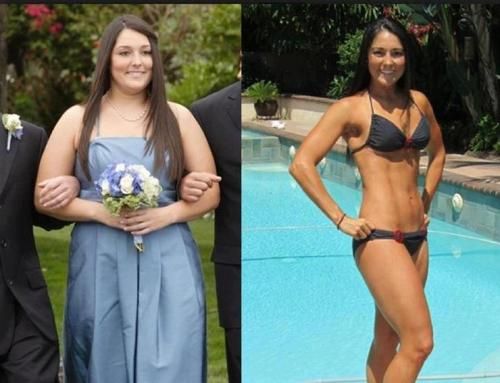Secrets no one tells you about dieting or about fitness and the industry:
There is an extremely ugly, untold, underbelly made up of body dysmorphia, shame, self-hatred, eating disorders, and physical complications.
There, I said it. Beneath those beautifully sculpted, progress photos on Instagram and all those fitness accounts with recipes that are 99 percent recycled information is a huge failure. The truth does not sell, but having the perfect body and the perfect diet does. Scant bikinis, single-digit clothing sizes, and goal body weight. Fast fixes, easy to follow protocols, and “flexible” diets do sell.
Most of us buy into it whether we want to admit it or not. Coaches would not be peddling their programs over on IGTV if we did not buy into it, and women, including loss Moms like me, would not crumble under the pressures of having postpartum bodies.
Entire industries are built on the backs of desperate “fat” people, regardless of their life circumstances or other health factors.
When I fell from fitness grace, it had been a long time coming. Losing my child and the complications I had afterward, followed by the grief, only appeared on the surface as the main culprit. It was not. The truth is, I had been descending for a while. I did not know how to balance extremely poor mental health with physical fitness and because of it, I spent a lot of time influx. Years of restrictive eating and behind the scenes berating of my tiny body could only be sustained for so long.
There are foods that I cannot eat today as I type this from a year that I spent eating the same exact meals nearly every single day. Consuming too few calories to achieve more weight loss and working out for a second and sometimes third time in a 24-hour period because I had five more calories that day than I was supposed to.
I thought I had lost interest in all of it. Telling myself that it happens because it does. You grow and change through life. I missed it, but found myself being overwhelmed at the idea of writing out a meal plan, calorie tracking, and having a training plan for myself. Me—a trainer, and nutritionist—overwhelmed with it because I am a human experiencing real life, too. I paid money to other people on the internet who promised to help me deal with my eating disorder. It failed. Why? Because none of the ones I could find had their own personal experience with it.
Instead, I created my own “protocol” (on accident) that worked for me.
I unfollowed every fitness account.
If you have ever lost any amount of weight or gotten into a gym program, you likely follow some, if not many, accounts on social media of the gurus in that sphere. Whatever worked for achieving a desirable “fitness” goal is now an IG account full of promoting whatever it is. MLM (multilevel marketing) weight loss products, diets, surgeons, workout programs. Now, here we are with massive amounts of “fitness” accounts from self-made experts.
Despite knowing how to discern fact from Instagram, and perfect body fiction, it was still difficult to navigate. What they served to do instead was make me feel like I was failing nearly every second of every day. How could I ever get back to any of that? I was convinced I never would and never could. (And I know that if it happened to me it happens to all of you, too).
I ate whatever I wanted to.
When I felt like it.
When you spend literal years in a caloric deficit via point or container systems without having a professional or the knowledge to calculate proper macronutrients and intake needs for your body, you will damage your metabolism. I did not know this in the beginning years but even after I learned, it was still extremely difficult. My body always reverted to undereating or giving off few (if any) hunger cues during periods of stress. The idea of meal prepping and tracking felt too overwhelming to me, so I did not do it.
For two reasons: 1) I needed a mental break and some freedom in it. 2) Disordered eating habits will also develop after years of existing in a fitness nutrition mindset like I did. I had fast-food cheeseburgers for the first time in a decade; potato chips and candy bars, too.
It took many months before I did not have extreme food anxiety over this. The panic about what I was putting into my body, how it would show up on the scale, how far back would it set me ate me alive (pun intended). So, in moderation, I ate whatever sounded good to me. There were truly no good or bad foods for the first time ever.
I moved my body in whatever way felt good to me.
This meant taking long walks or hikes or doing some heavy squats or deadlifts until it no longer felt good anymore. This also meant I was much less active than I had been previously and sometimes, I did not move it at all.
I spent years dedicating between four and six days a week with a training plan of some kind. My rest days were what we call “active rest” days. Meaning that, even on days without a set plan, I was still gently active (re yoga, walking, hiking, biking, rowing). It took a massive amount of self-restraint to not fall into a trap of feeling like my “training” was pointless when operating at minimal levels like this but eventually, absolving myself of the pressure to perform was a much needed mental break.
I ditched my Fitbit.
When fitness trackers first became readily available to the public, I could not wait to get one. I believed sincerely that it was the ticket to unlocking more weight loss for me. At the time, I weighed roughly 150 pounds or so, operated in a severe caloric deficit, and rarely had a rest day.
As tracker models upgraded, so did I. Setting my step count goals at higher and higher counts and spinning into anxiety-riddled hours when I could not get my steps in. Feeling like I had failed and the entire world on the Fitbit community knew about it.
The thing is, there is little to no science behind 10K steps per day. They are inherent estimates and, therefore, often incorrect. Stirring a pot of soup on the stove can be registered as steps regardless of how expensive your fitness device is.
Either way, it is not any measure of self-worth, and I have had many clients also fall victim to this mentality too.
I shifted my definition of fitness.
Most people, including too many in the industry, think of fitness only as physical health. This ideology is how women like me fall into this trap of achieving weight loss, exercise, and then “falling from fitness grace” after a pregnancy, loss, or because life just happens. But fitness is all things with a small mindset shift. It sort of went like this: instead of training sessions, I started viewing my therapy appointments as my workout for that day.
Because…
Fitness is living now. No fluff. Fitness is mental health. Fitness is self-care. Fitness is balance. Fitness is connecting with friends. Fitness is enjoying life in the body you have at this moment.
Not when you lose 10 more pounds. Not when your 1100 calorie diet allows you to purchase those smaller shorts or gifts you a “bikini” body. Not punishing or berating yourself for working out or for not working out.
If you have experienced this burnout or fall from the good graces of all the things that fitness as an industry is, please know it is not a reflection of you or your self-worth.
~







Read 0 comments and reply